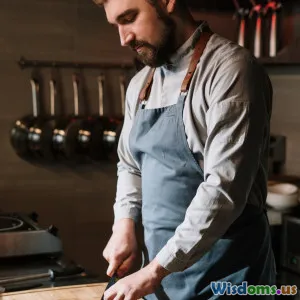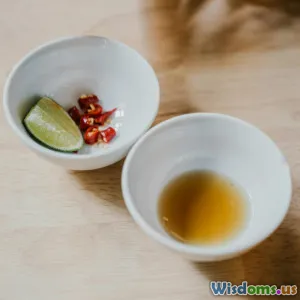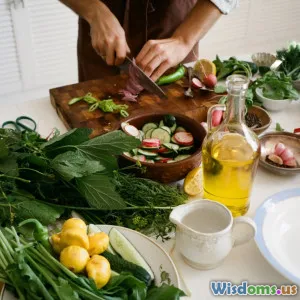
Cooking for Beginners: Essential Skills
5 min read Master the basics of cooking with essential skills for beginners. (0 Reviews)
Cooking for Beginners: Essential Skills
Cooking can seem daunting for beginners, but mastering a few essential skills can transform your kitchen experience from overwhelming to enjoyable. Whether you're preparing a meal for yourself or hosting friends, these foundational skills will boost your confidence and help you create delicious dishes.
1. Knife Skills
One of the most important skills in cooking is knowing how to use a knife properly. Good knife skills not only make the process more efficient but also safer. Here are some key aspects to consider:
- Choosing the Right Knife: A chef's knife is versatile for most tasks, while a paring knife is perfect for peeling and intricate work.
- Basic Techniques: Learn how to chop, dice, and mince. Practice makes perfect, but always prioritize safety by keeping your fingers tucked away from the blade.
2. Understanding Cooking Methods
Familiarizing yourself with various cooking methods will broaden your culinary repertoire. Here are a few fundamental techniques:
- Sautéing: A quick method using a small amount of fat in a hot pan. Ideal for vegetables and proteins.
- Boiling: Cooking food in water or broth at high temperatures. Great for pasta and grains.
- Baking: Using dry heat in an oven to cook food, perfect for bread, pastries, and casseroles.
3. Flavoring and Seasoning
Learning how to season your food can elevate your dishes significantly. Here are some tips:
- Salt: It enhances flavors and can make a dish taste complete. Always taste as you season.
- Herbs and Spices: Fresh herbs like basil and parsley can brighten dishes, while spices like cumin and paprika add depth.
- Acidity: A splash of vinegar or citrus can balance flavors and add brightness to your meal.
4. Reading and Following Recipes
Recipes are a beginner's best friend. They provide a roadmap for creating delicious meals. Here’s how to effectively read a recipe:
- Prep Work: Gather all ingredients and tools before starting. This practice, known as mise en place, helps streamline your cooking process.
- Understanding Terms: Familiarize yourself with common cooking terms. Knowing what 'simmer' or 'fold' means can prevent confusion.
5. Food Safety
Safety in the kitchen is paramount. Here are some essential food safety tips:
- Cleanliness: Always wash your hands before handling food and clean surfaces regularly to prevent cross-contamination.
- Proper Storage: Store perishables in the fridge promptly and be aware of expiration dates.
- Cooking Temperatures: Use a food thermometer to ensure meats are cooked to safe temperatures to avoid foodborne illnesses.
6. Experimentation
Once you’ve mastered the basics, don’t be afraid to experiment! Cooking is an art, and trying new ingredients or techniques can lead to delightful surprises. Consider these ideas:
- Swap Ingredients: If a recipe calls for one vegetable, try another that you enjoy.
- Adjust Spices: If you love a particular spice, increase its amount to suit your taste.
Conclusion
Cooking is a skill that improves with practice, patience, and a willingness to learn. Start with the essential skills outlined above, and soon you'll find joy in creating meals that delight both you and those you share them with. Remember, every great chef was once a beginner, so embrace the journey and have fun in the kitchen!
Rate the Post
User Reviews
Popular Posts





















